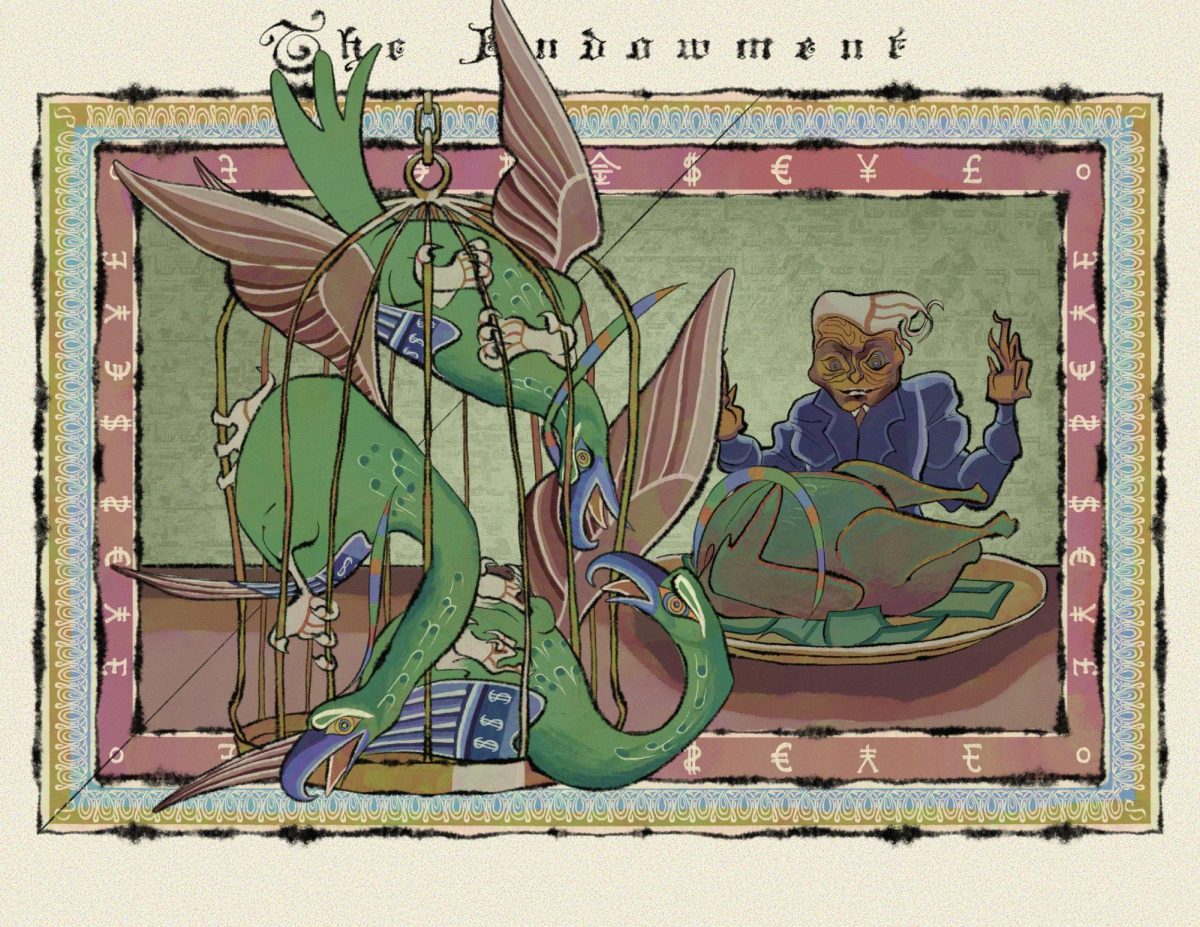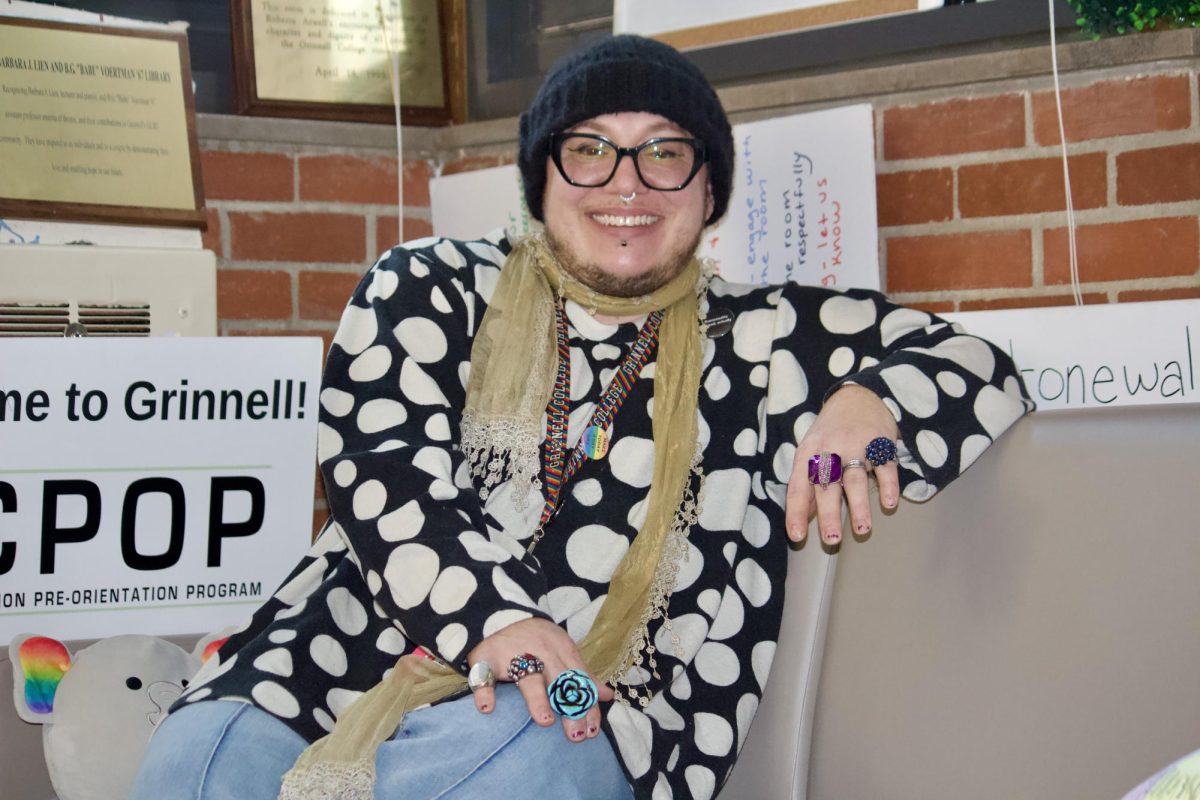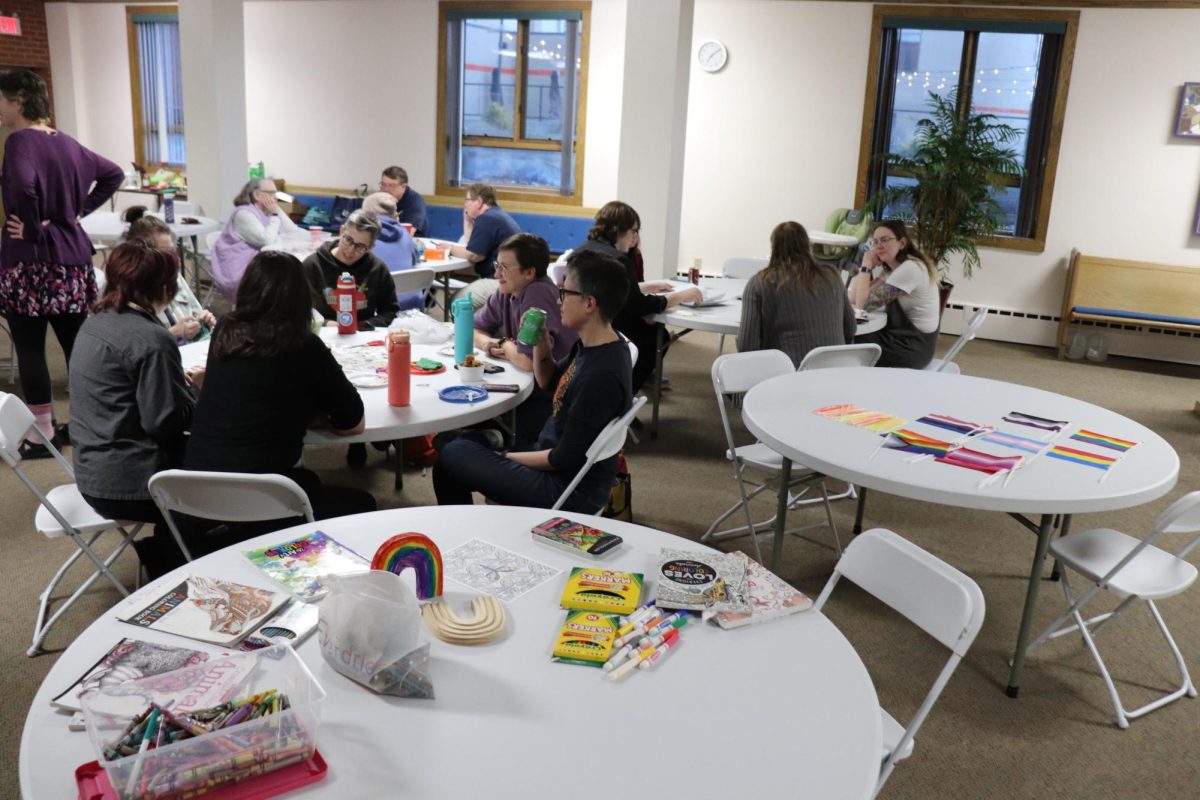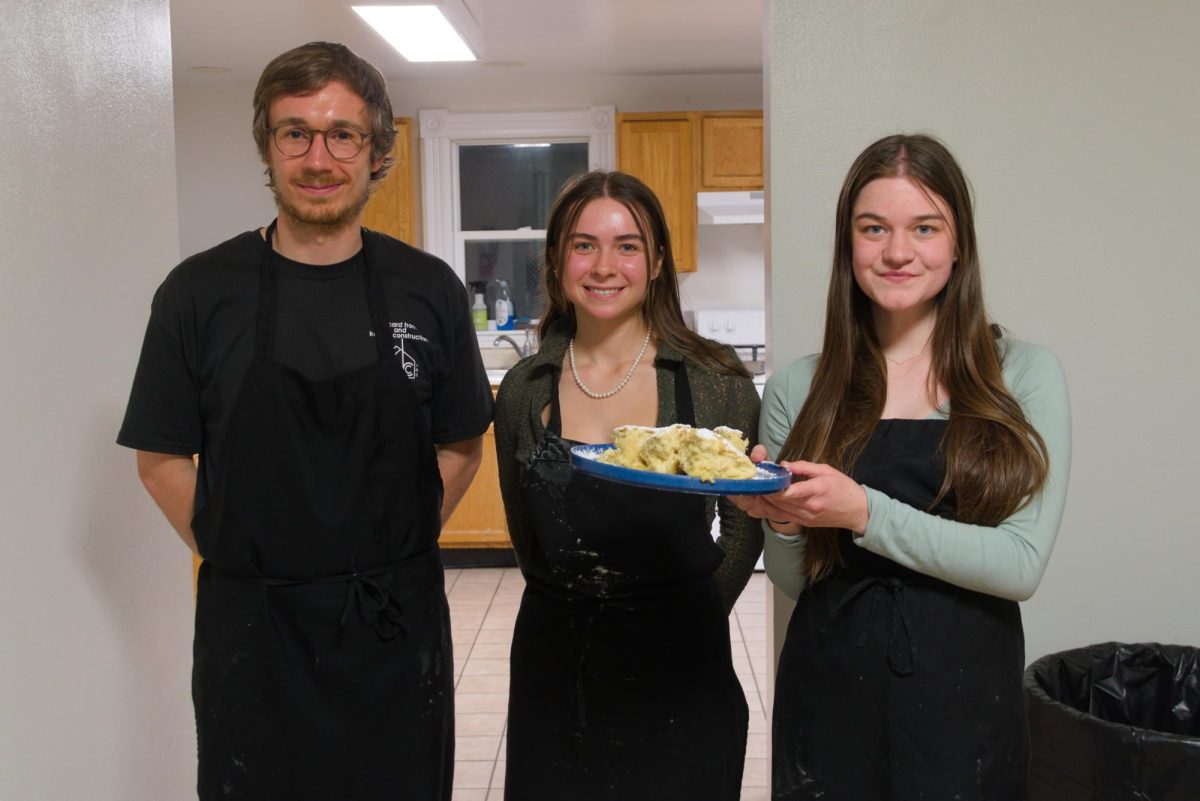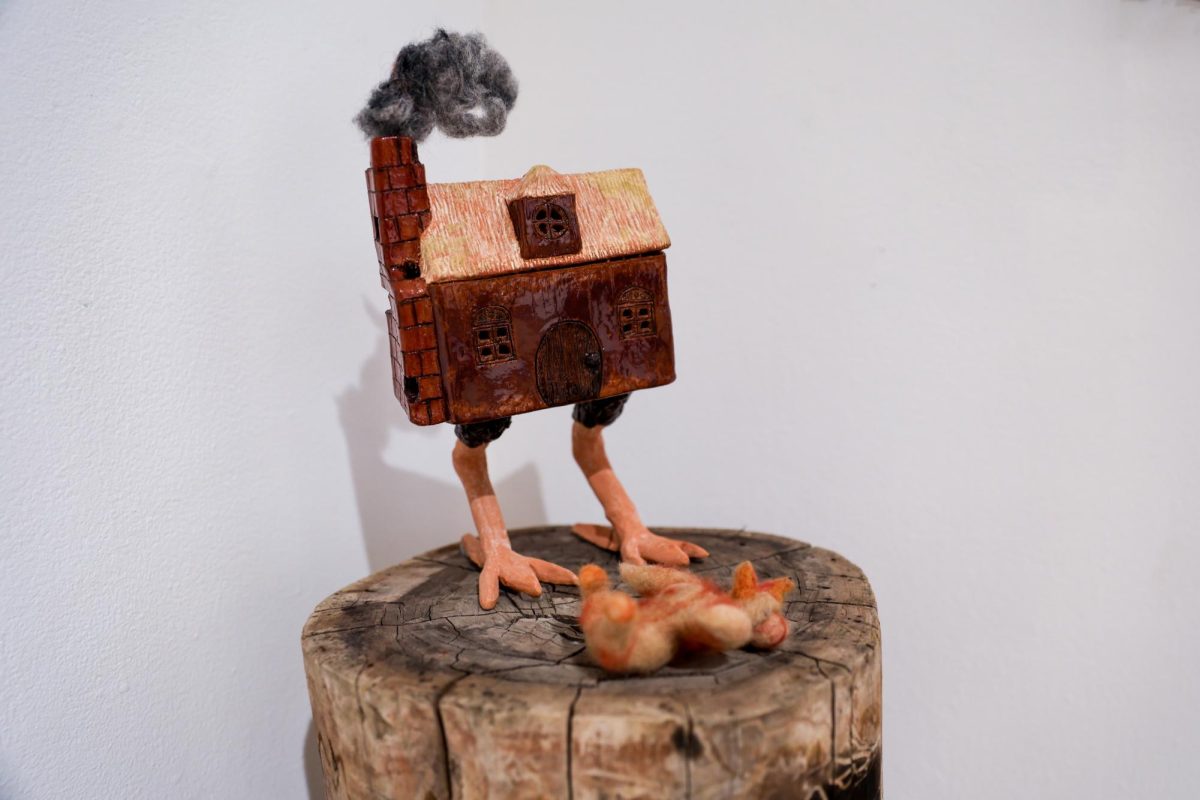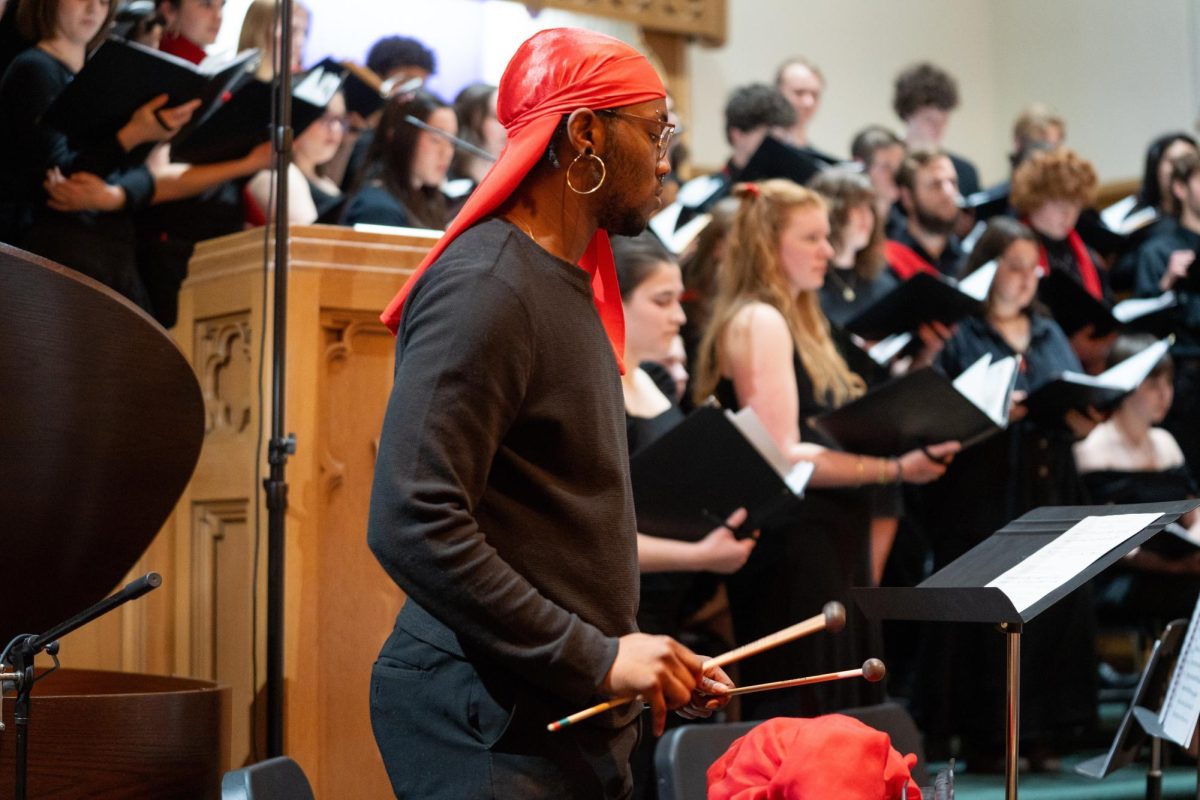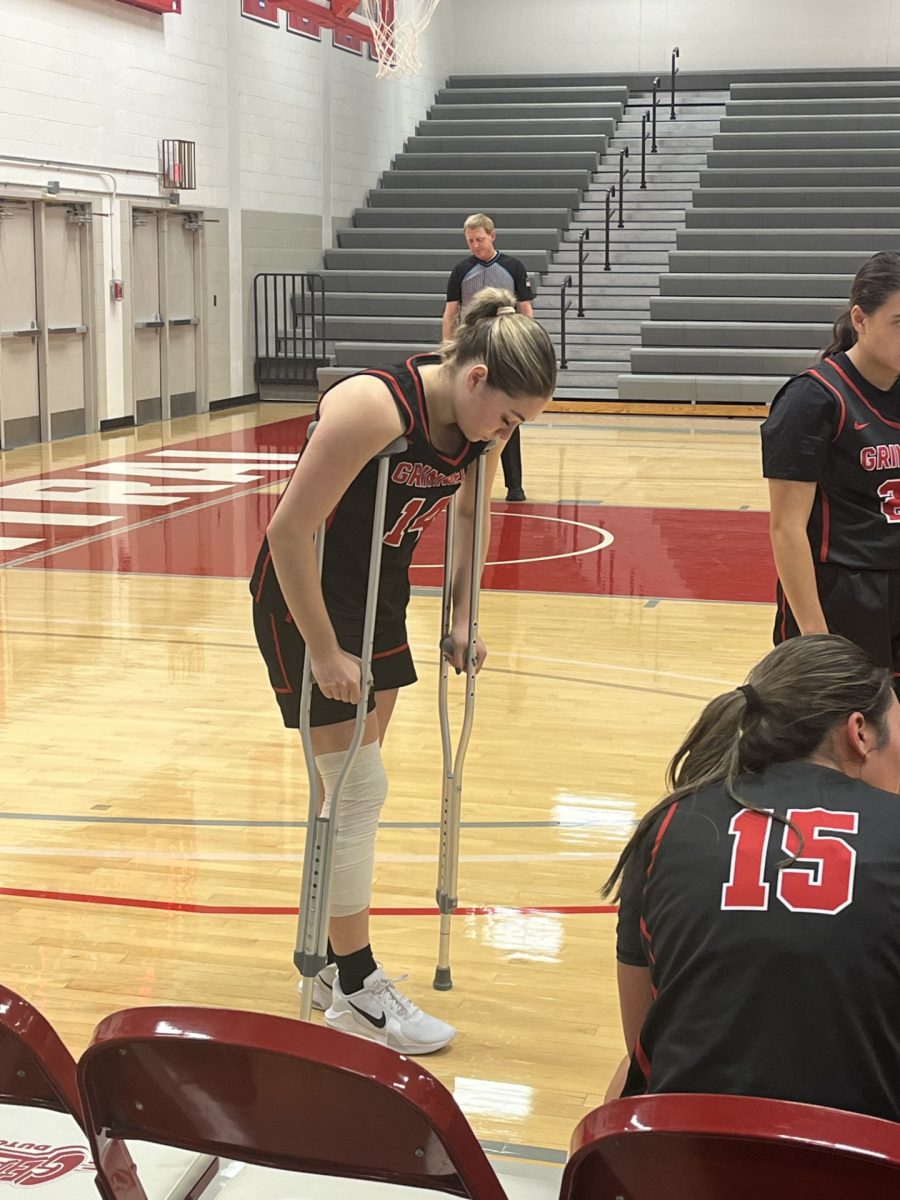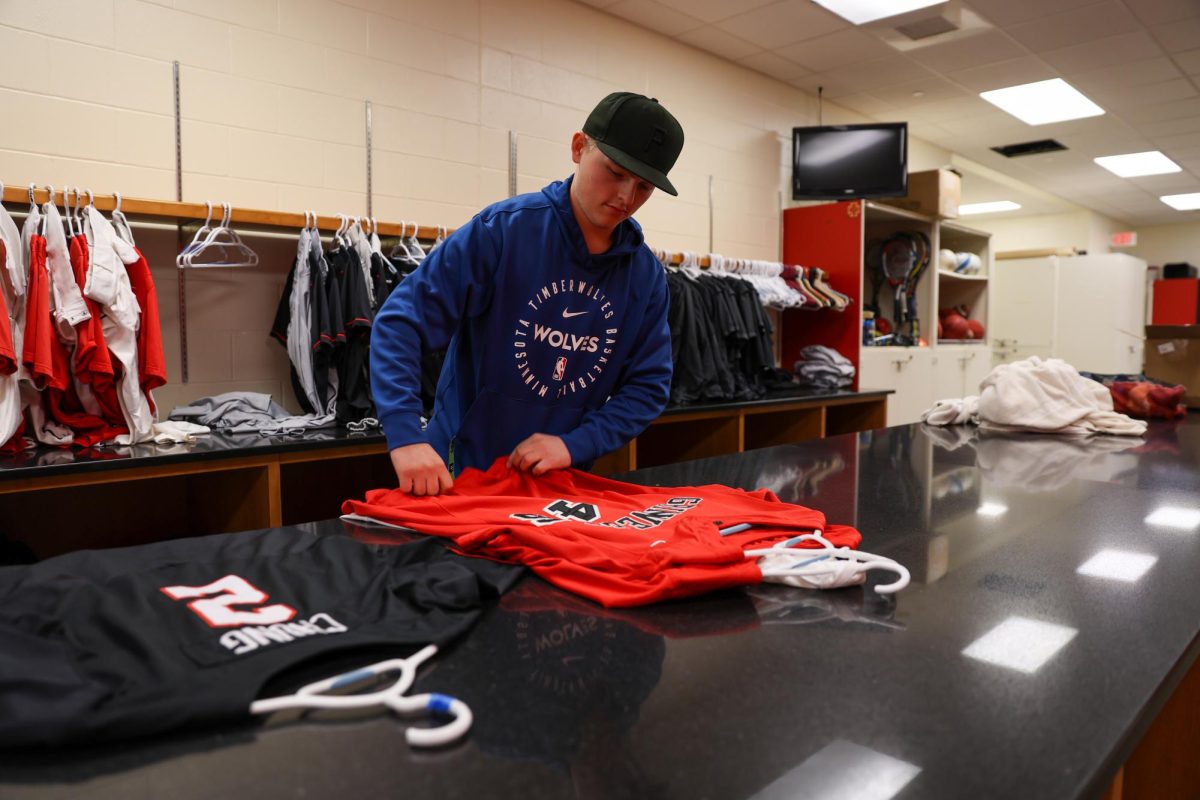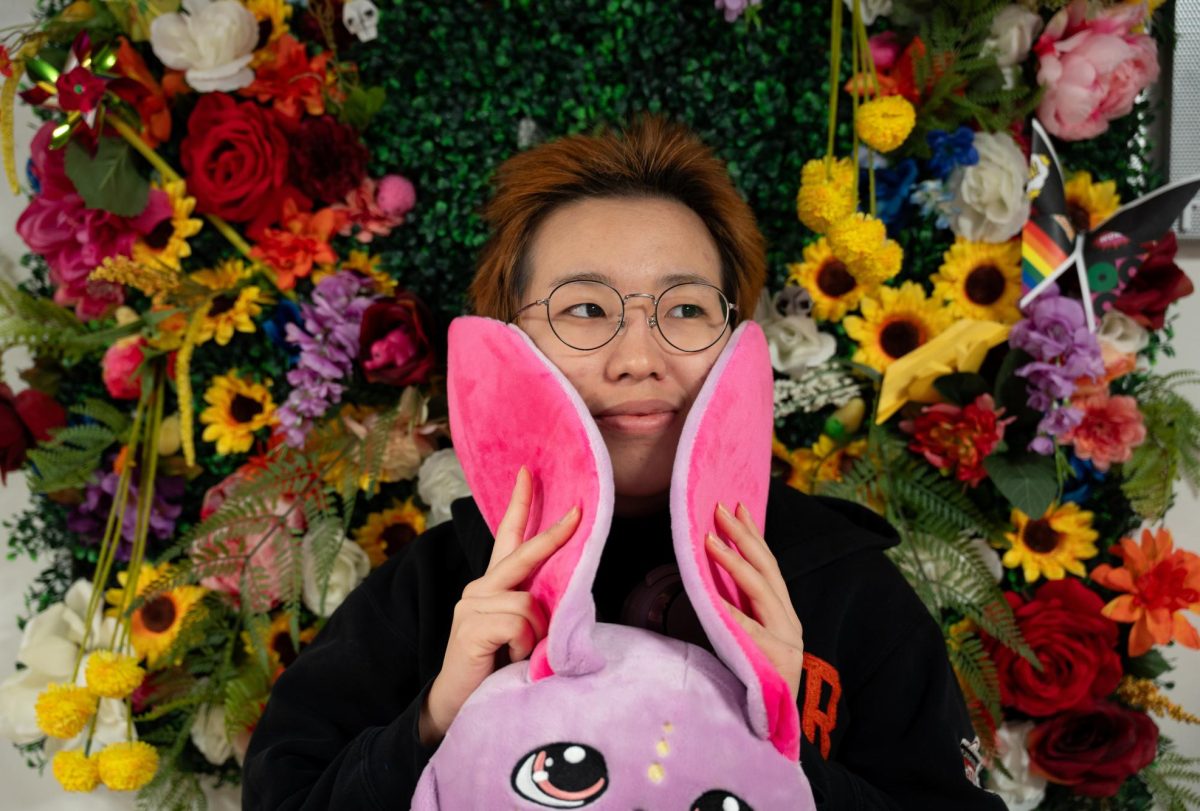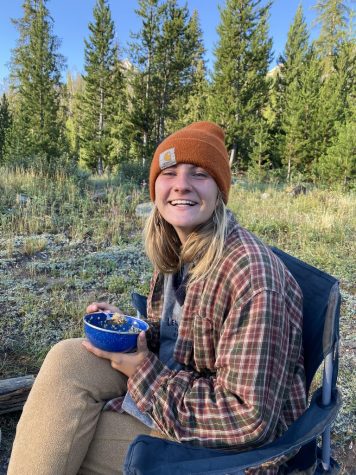Mental Musings: The Princess of Vulnerability
Graphic by Hannah Agpoon.
March 7, 2022
By Millie Peck
peckcami@grinnell.edu
If Brené Brown is the queen of vulnerability, then I was the princess. If you don’t know who that is, then go watch her Ted Talk now! I became acquainted with Brené Brown while at a partialized hospitalization program at McClain hospital in Boston (yes, the one from “Girl, Interrupted”). I sat among a group of other suicidal teens and learned that vulnerability is non-negotiable if you want to live a happier life.
See, by the time I arrived at college, I thought I had vulnerability dialed. I wasn’t afraid to discuss my diagnosis with anyone. Thus, one might be surprised to know that in high school I had kept the truth of my mental illness locked away. My teachers, my teammates, casual friends didn’t have any idea that death whispered in my ear every day. My close friends knew I struggled — they saw my self-harm scars and knew why I left school. But while my friends knew my diagnosis, they knew very little about my lived experience. I hadn’t shared the most grotesque pockets of my life with them. Clearly, that approach wasn’t working, so when I returned home from treatment my senior year, I vowed to follow Brené’s wisdom and truly practice vulnerability.
A couple months later my friend asked me to give a Ted Talk-style speech for his senior capstone project. I decided to channel my goddess (Brené) and talk about vulnerability. My talk was posted on YouTube and, while only receiving 3,000 views, its impact in such a small community felt substantial. Classmates, moms, teachers, yoga instructors reached out to me and told me that my story deeply touched them. And others who struggled with these highly stigmatized diseases thanked me for my vulnerability. It felt sublime. I’d been deeply ashamed and scared of sharing my struggles for a long time; I didn’t want to be seen as weak. But when I finally did, people told me I was strong, capable, inspiring. Maybe vulnerability wasn’t so bad.
So, when I came to college, I was unapologetically candid about my mental health struggles, sharing my diagnosis with anyone who cared to ask. Vulnerability was my bitch. Even when I was sent back to inpatient treatment last winter, I never questioned my vulnerability skills.
And then I fell in love. And I realized: I had no idea what I was doing.
When I first started to fall in love I would have the most wonderful day with him, a lay-in-your-bed, giggle-and-clutch-your-chest-from-happiness kind of day. But then an intrusive, anxious thought would consume me from the inside out, and that warm, fuzzy feeling would evaporate into a cloud of anxiety. Every day for months the same series of intrusive thoughts prevented me from really being able to enjoy the euphoria of my new relationship: What if it doesn’t work out? What if we break up? What if he leaves? What if I drive him away? What if this ends? What if one day, he decides he doesn’t want this? Doesn’t want me?
After describing these thoughts to my therapists, she suggested I tell him they were happening, and since I pay her the big bucks, I figured I should take advice. So I did. And my God, the relief! Suddenly I wasn’t so alone in my mind and the thoughts dissipated. A couple weeks later my boyfriend asked me why it took my therapist suggesting it for me to share my anxieties, why I didn’t feel like that was something I could tell him. I told him I wasn’t sure, but that wasn’t true. I hadn’t because I didn’t want to admit any of it; how in love with him I am, how plagued by my anxieties, how neurotic and emotional and obsessive I am. It felt too raw, too real. Too… unlovable?
Sharing my anxieties wasn’t easy because, well, vulnerability is far less challenging in the past tense. It’s far easier to say, “I used to have an eating disorder” than it is to say, “Can you hold my hand, I’m really struggling to eat this.” In other words, it’s easy to admit the things that feel shameful or ugly when they no longer apply.
In truth, I’ve realized that talking about the ways I continue to struggle with my mental illness still feels deeply shameful. Maybe the only reason it was so easy for me to be so vulnerable was because I was able to separate myself from it, to pretend that, yeah, I struggled but that’s not me anymore — I’m better now. In truth, I’m doing a lot better, but I’m not cured; I probably won’t ever be. I have to learn that when I have a panic attack, I can call my boyfriend and tell him that I’m scared. Vulnerability is telling him the things that I feel might cause him to leave. Vulnerability requires a great deal of trust, in some ways that’s what vulnerability is all about.
That’s not to say that sharing your diagnosis and experiences with others isn’t important or vulnerable — it absolutely is! But vulnerability is far more difficult than a “trauma dump.” Vulnerability is about letting your friends see your dirty bedroom, reapplying for an internship you’ve been rejected for, telling your friend something they did hurt your feelings. Vulnerability is about sharing all the ugly parts of yourself. And this is something everyone needs to do, not just people with trauma and mental illness.
I recently re-acquainted myself with Brené Brown, and I realized that if I had really been paying attention, I would have realized that I had it wrong the whole time. In fact, she uses falling in love as an example: “I define vulnerability as uncertainty, risk, and emotional exposure. With that definition in mind, let’s think about love. Waking up every day and loving someone who may or may not love us back, whose safety we can’t ensure, who may stay in our lives or may leave without a moment’s notice, who may be loyal to the day they die or betray us tomorrow — that’s vulnerability.”
Vulnerability isn’t about big declarations or reveals. Rather, it’s about letting others — the people you care about most — see the little cavities of yourself that make up the essence of your very being. And that doesn’t have to be with a romantic partner; vulnerability applies to all the important people in our lives. Vulnerability can be immensely painful, and trusting others requires giving up a large amount of control. However, when we practice vulnerability, if we show others the parts of ourselves we hate the most, we not only deepen those relationships but also increase our capacity to love ourselves. Because if other people can see the unpleasant parts of us and still love us, we can do the same. We can fail and mess up and struggle; we can be human and still find ourselves lovable.


